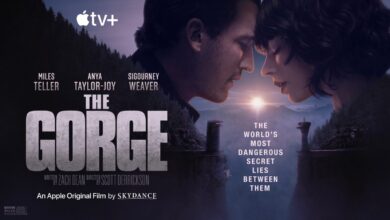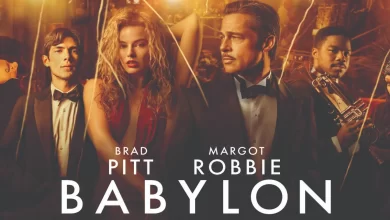Black Panther: Wakanda Forever Review: A Mature and Emotional Film For Which It Will Be Impossible To Hold Back Tears
Cast: Letitia Wright, Lupita Nyong’o, Danai Gurira, Tenoch Huerta and Angela Bassett
Director: Ryan Coogler
Where To Watch: In Theaters
Filmyhype.com Ratings: 4/5 (fours stars)
These are two premises probably known to most, but necessary for this review of Black Panther: Wakanda Forever as the same film cannot ignore two contrasting elements: on the one hand, an extraordinary success and a skyrocketing expectation for this sequel, on the other hand, everyone’s awareness that the death of its undisputed protagonist is a void that cannot be filled in any way. And, rightly so, the new film doesn’t even try to do it. Then in August 2020 came the terrible news of the death of Boseman, the actor that all the media were still celebrating for his performances and his example to the younger audience. Unexpected news for everyone, it is even said for Marvel itself and many of its colleagues, which shocked the world and shattered the dreams of those who saw in this black superhero the future of the MCU and the beginning of a new way to imagine the entertainment industry.
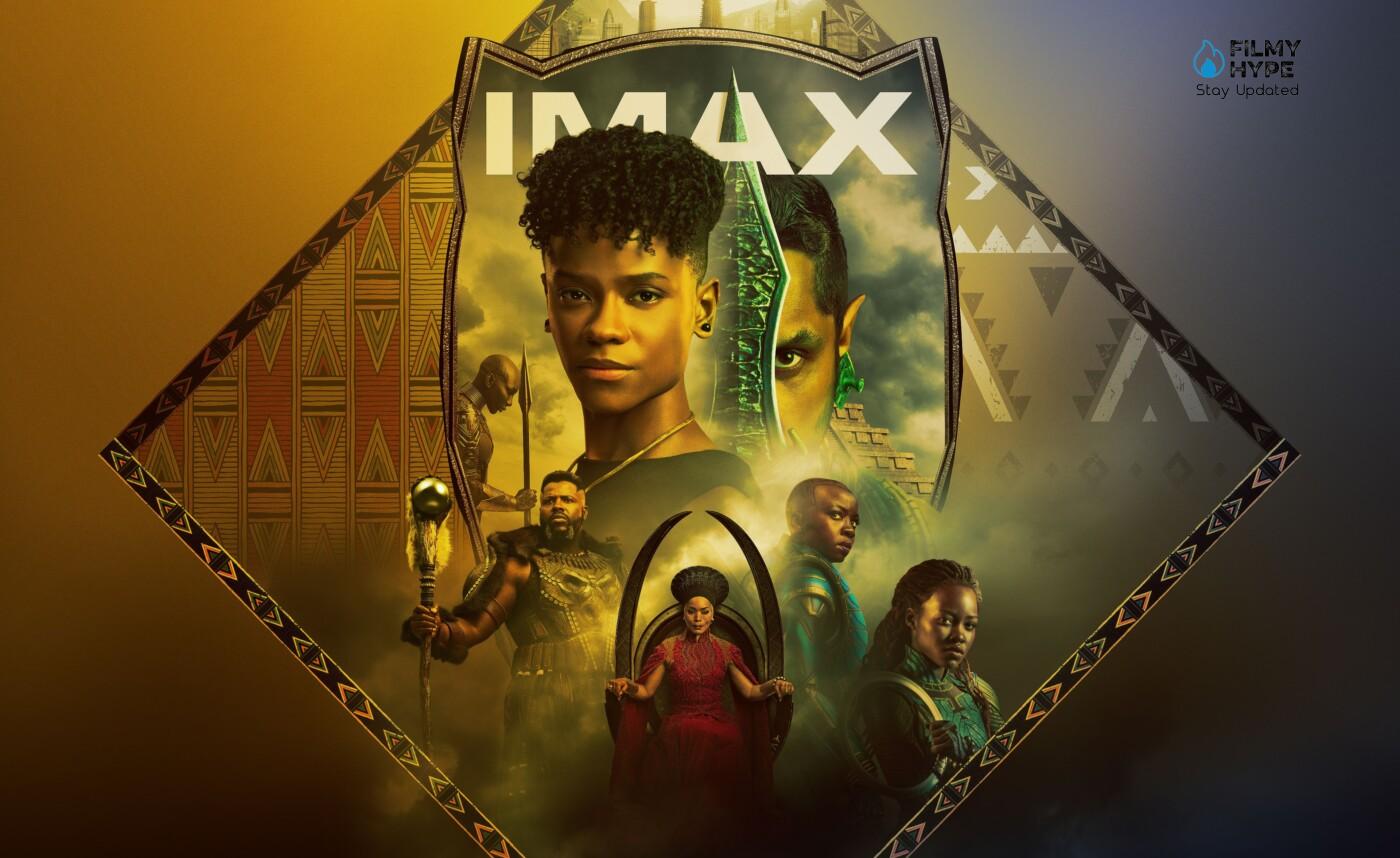
When it arrived in 2018, Black Panther was even more successful than Marvel itself could even dream of. The merit of the director Ryan Coogler, of the fascinating protagonists (Chadwick Boseman and Michael B. Jordan above all), but also and above all for the ability to understand, address and involve an audience – the black, American not only – that historically and notoriously does not have never been the main recipient of superhero stories and super-high-budget blockbusters. Also for this reason the first Black Panther was a commercial but above all a social phenomenon that here in Italy we were able to perceive and understand only partially.
Black Panther: Wakanda Forever Review: The Story
It starts with a funeral, that of King T’Challa: he died of an unspecified and sudden illness. We never see and will never see his Black Panther, but only his family and his people celebrate him and try to come to terms with this unexpected tragedy. In short, reality and fiction are mixed in this prologue that appears as melancholy as it is sincere. A year later it is Queen Mother Ramonda who holds the ranks of Wakanda and hard-nosed the other more powerful members of the UN who continue to look for an excuse to be able to take possession of the precious vibranium.
And if the mother continues to protect the country with diplomacy, Princess Shuri focuses on her knowledge and technological skills to design new weapons and new defence systems, well aware that Wakanda is no longer safe. But the danger comes from the most unexpected place of all: the depths of the ocean. And it bears a name that comic book fans know well but that makes its screen debut here: Namor is the king of Talokan, an ancient civilization that lives underwater and that for centuries has always kept itself hidden from the rest of the world. world. Only now has he decided to show up with the Wakandians, seeing in them a possible ally against those who live on the surface and think only of plundering the resources of others. But with so many interests at stake, the boundary between friends and enemies is becoming increasingly blurred.
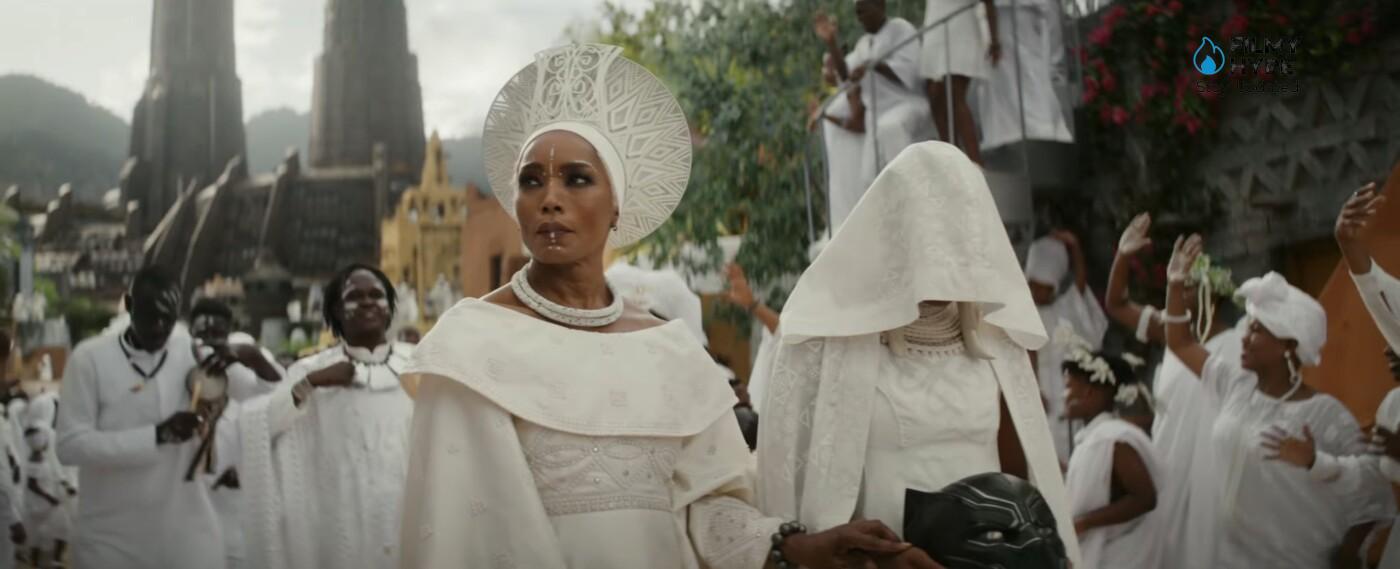
After Chadwick Boseman passed away, I wondered several times how they would set up the Black Panther sequel. I couldn’t help thinking that there would have been a Black Panther movie without its real protagonist, but unexpectedly I had an emotionally devastating experience. I confirm this after I had the opportunity to see the film for a second time and after that, on both occasions, I was overwhelmed by the emotions that the whole cast was able to convey. It must not have been easy to work on this film, just as it is not easy not to be influenced by what happened to Chadwick.
The risk of making a film that was just a simple homage to Boseman was very high, but Ryan Coogler didn’t stop there. The American director has built a mature story as we have hardly seen previously in the MCU. A lot revolves around the acceptance of bereavement and the different reactions people have after the disappearance of a loved one. Anger, disappointment, resignation and many other emotions, in some cases even positive, are very close to those experienced in real life.
The fact that T’Challa ‘s death is presented in a realistic and non-superhero way I found it a strength. The “normality” of the disappearance of Black Panther involved a lot of the emotional transport that faces his family and his people. A difficult choice that in the end turned out to be a winner and that, thanks to the construction of the characters and the plot, makes Wakanda Forever one of the best products of Marvel Studios.
Black Panther: Wakanda Forever Review and Analysis
Directed again by Ryan Coogler, Black Panther: Wakanda Forever, despite himself, demonstrates how what happens in the Marvel universe is not always the result of a precise plan. The death of Boseman, to whom the director had sent the script thinking of finding him soon on the set, led to a radical rethinking of the project, more focused on the nation of Wakanda (not surprisingly, on the posters and in the credits of the film itself, the subtitle is larger than the title of the protagonist). It is, in part, a public elaboration of mourning, with the film opening with the death – offscreen – of T’Challa and her funeral, followed by the Marvel Studios logo which, along the lines of what was done temporarily with the first movie on Disney+, contains images of Boseman only. And it’s the most beautiful and sincere part of the film, this farewell to an icon, on and off the screen.
The second soul of the film is linked to Namor, the antagonist who, while continuing the constant expansion of the MCU, is a coherent choice to delve into the world of Wakanda, at least for how Coogler had already brought it to the screen in 2018. At the time, with the beginning set in Oakland in 1992 (a period of racial tensions after the beating of Rodney King) and the figure of Erik Killmonger, the director had managed to effectively combine very personal material and the needs of the great blockbuster, by signing a superhero movie from a Black Lives Matter perspective and attracting the attention of unsuspected elements such as the Academy, complete with Oscar nominations in the heaviest category. The second film continues in that direction, expanding the anti-colonial discourse by taking the figure of Namor, traditionally the ruler of Atlantis, and updating it through Mesoamerican mythology, making the underwater anti-hero the perfect spiritual successor to T’Challa’s cousin.
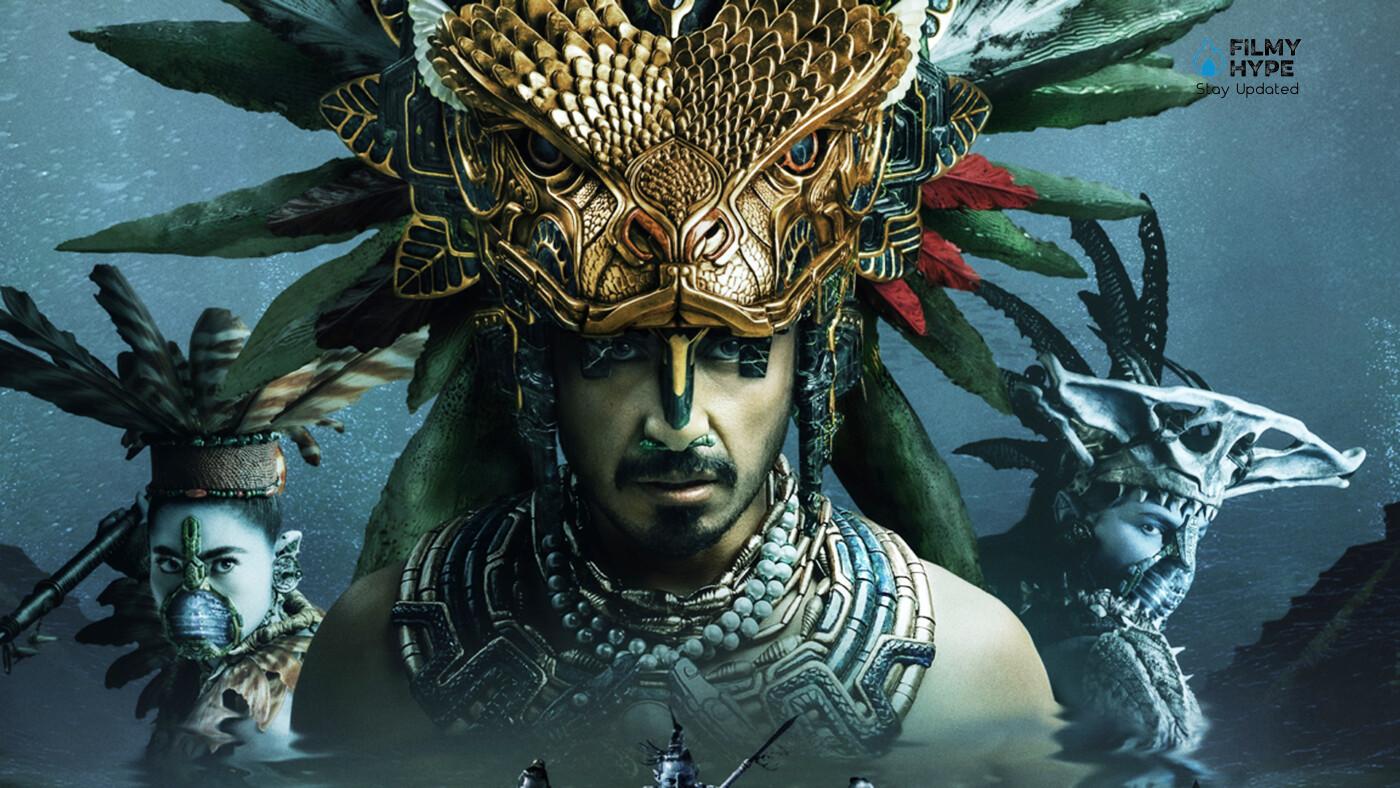
And on this front, with the inevitable water battle, the sequel also manages to overcome the prototype in the action department, fading the memory of the swinging CGI in the final battle between the king and usurper. Where there is a glaring and surprising fall, however, is in the way the film has been positioned within the larger design for the audiovisual franchise of the House of Ideas. Whereas the first episode, while arriving just before Avengers: Infinity War, was perfectly self-contained (except for the reference to the future in the post-credits), the sequel was inexplicably treated as a link between Phases Four and Five. And so, along with two hours of thrilling geopolitical thriller and meditation on death, there are also forty minutes of subplots where only a “Coming Soon” is missing. Written in large letters in the subtitles of page 777 of Teletext. Four years ago, T’Challa’s accession to the throne revolutionized the genre, proving that certain industrial biases about African-American actors and filmmakers were completely wrong.
Today, his death offers some of the most touching moments of the franchise, alternated, however, with generic slips that unnecessarily burden a film already of his compromise due to force majeure. And here we return then to the other great problem of the film, a huge defect of which no one is guilty but which affects this second chapter. We have already mentioned how great it is to have a film with such a large and central female presence, and it is evident in every scene how talented and above all versatile the main performers are (Lupita Nyong’o speaks five languages throughout the film). Yet a few flashback scenes in which T’Challa is seen again are enough to make us understand and remind us how much, in a film of this type, a protagonist is missing from the stage presence of Chadwick Boseman. Or even Michael B. Jordan, the only one who, in hindsight, could have inherited his role.
There are no performers who not only managed to perfectly characterize their characters but who also gave the film a unique style and personality, so much to make it loved and famous above its real artistic value, but never in an undeserved way. Precisely because in Black Panther there was a perfect balance between modernity and tradition, between the motivations of the protagonist and his enemy, and between style and content. A balance that never exists in this Wakanda Forever. On the other hand, there are single good moments that especially fans will be able to appreciate: but it is certainly no coincidence that they all concern the memory of the first real Black Panther and that void that is impossible to fill.
A Surprising Namor And A Surprising Soundtrack
Namor was one of the biggest unknowns. The choice of Tenoch Huerta for the role has inflamed the web for the great difference compared to the paper counterpart. This is a clear difference that will surely make the most avid comic readers turn it upside down, but in the context of this film is almost perfect. The origins and motivations that push Namor to challenge Wakanda are built very well and make sure that the characterization of the character is believable.
Namor’s impact in the film is astonishing, as is the story of the people of Talocan. Seeing Namor in the trailers I admit I was really worried about his character’s rendition on the big screen, but the first occasion he and his warriors entered the scene bewitched me. To make the story of the inhabitants of Talocan even more impressive is the choice of sounds and songs that accompany them. Ludwig Göransson ‘s music is overwhelming and blends perfectly in all circumstances. Every single scene is accompanied by sounds that go perfectly with what is happening, up to those credits embellished by Rihanna’s touching Lift Me Up.
Shuri And Her Inner Struggle
We now come to Shuri, the character played by Letitia Wright and the main protagonist of this film. Her journey is the most complicated and she thrives on inner struggles due to the loss of her brother. Everyone suffers from T’Challa’s death, but Shuri is the one who has the hardest time accepting it and moving on. The princess lives in mourning with anger and gradually needs the support of everyone, without exception. His rise is moving and thrives on ups and downs that show the best and worst of his character. The understanding that she creates with Riri Williams is excellent, so much so that I hope to see a cameo of Shuri in Ironheart. Wright has the merit of chasing away the bad thoughts that were created about her thanks to an emotional interpretation that cannot go unnoticed.
More than two and a half hours of the film where the emotional and human charge is at the centre of everything. Wakanda Forever is action-packed, but it’s the more sentimental part that takes the show. Everything is perfectly balanced and the classic jokes we see in Marvel products are stripped down to the bone. The tributes to Chadwick Boseman made me cry and my stomach trembled, especially during the classic Marvel Studios theme song at the beginning of the movie, and during the final scene. Two moments are linked in a deafening silence from goosebumps.
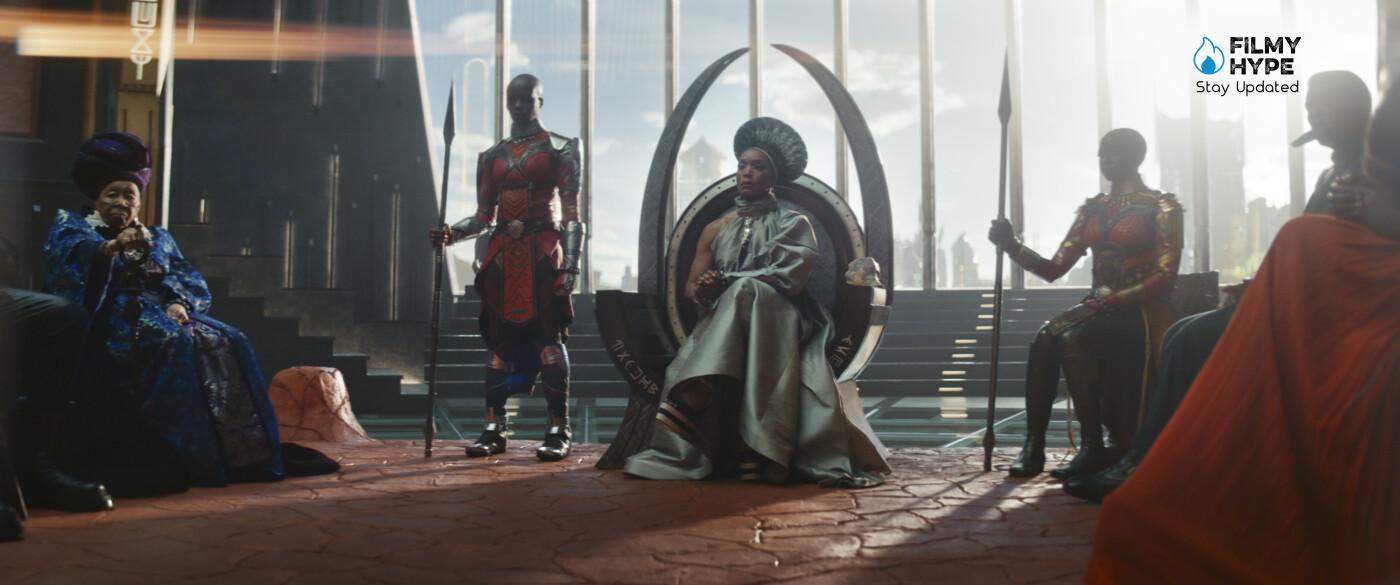
If you have made it this far you will have noticed that I have practically said nothing negative about the film. The reason is that I believe that there is very little negative and that the little that is there is overshadowed by a product that has come close to perfection. There are two things you can make notes on in your diary. The first concerns CGI, even if the defects are less tangible than in the latest products. The second thing that made me turn up my nose slightly is the final resolution. Not for the sense, that’s perfect, but for the way, it was staged. It would have been enough to “anticipate” a vision or to dare more to make the most of everything, but it is still a crumb that does not spoil the beauty of the film. I’m sure many will come up with a scene from Batman v Superman, with the hope that this time the audience will understand the message without the need for post-film explanations.
Black Panther: Wakanda Forever Review: The Last Words
Black Panther: Wakanda Forever is a film that talks about mourning but at the same time have to deal with the loss of its lead actor: for this reason, it is certainly the saddest and most melancholy film in the Marvel Cinematic Universe, in some ways also the angriest. All this translates on screen in a film certainly less epic and impressive than the previous one but probably also in the closing of Phase 4 that is more anti-climatic and less ambitious than it was reasonable to expect. It’s a big celebration that fans will likely enjoy anyway, but in fact, it looks a lot more to the past than to the future.




